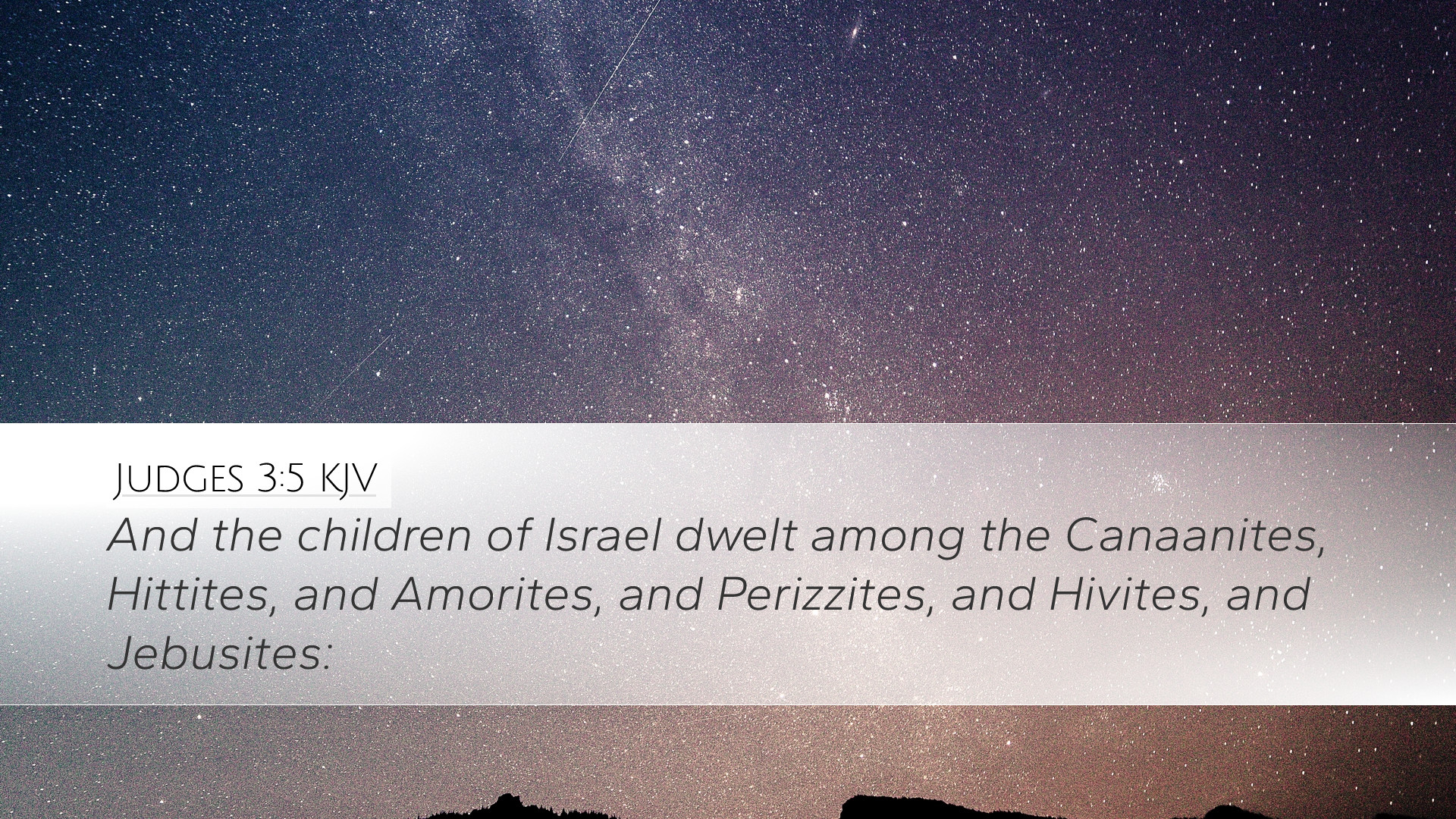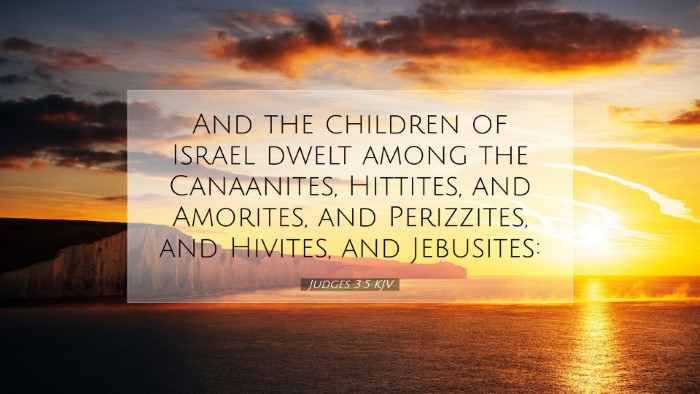Judges 3:5 Commentary
Judges 3:5 states: "And the children of Israel dwelt among the Canaanites, Hittites,
Amorites, Perizzites, Hivites, and Jebusites." This verse indicates the settlement of Israel in Canaan and highlights the ongoing struggles between the Israelites and the surrounding nations.
Contextual Analysis
The Book of Judges describes a time in Israel’s history when they were without a king and often turned away from God. After the conquest of Canaan under Joshua, the Israelites settled among various peoples with whom they had complex interactions, both political and religious. The repeated cycles of sin and repentance mark this era, which is critical for understanding the nature of Israel’s relationship with God and the consequences of their actions.
Insights from Commentators
Matthew Henry
According to Matthew Henry, this verse captures the disobedience of the Israelites by cohabiting with the Canaanite nations, which God had commanded them to drive out. Henry points out that instead of fully possessing the land, they allowed various nations to remain, which would lead to inevitable trials and temptations. This warning serves as a reflection on how allowing worldly influences can compromise one’s spiritual integrity.
Albert Barnes
Albert Barnes highlights the sociocultural implications of Israel's presence among the Canaanites. He notes that the mingling with these nations was not only a physical coexistence but also a moral and spiritual danger. Specifically, the presence of these nations led to Israel adopting foreign customs and practices, which was contrary to their covenant obligations to worship the Lord exclusively. Barnes emphasizes the importance of spiritual vigilance against the erosion of faith through intermingling with those who do not share the same commitments to God.
Adam Clarke
Adam Clarke elaborates on the geographical and historical context of this settlement. He discusses the various tribes mentioned, such as the Canaanites and Hittites, which represent different nations with distinct cultures. Clarke suggests that this mixture can be seen as a metaphor for the challenges faced by believers when they dwell among a secular society. The verse serves as a reminder of the potential spiritual dangers and the necessity of maintaining purity in faith amidst a diverse cultural landscape.
Theological Implications
Theologically, Judges 3:5 presents critical themes regarding God’s warnings and the consequences of disobedience. The failure of Israel to completely take possession of Canaan and their decision to live among these nations leads to significant spiritual decline. This situation typifies the ongoing struggle for believers: the tension between living in the world and remaining distinct as God’s people.
Lessons for Modern Believers
- Guarding Against Compromise: Just as Israel faced the temptation to adopt the practices of surrounding nations, modern believers must be vigilant against compromising their values in a secular environment.
- The Importance of Separation: The act of dwelling among other nations symbolizes the need for believers to maintain a separation from sin, aiming to uphold their calling without succumbing to external pressures.
- Understanding Consequences: The history of Israel serves as a lesson in understanding the long-term consequences of decisions made in disregard of divine commandments.
Conclusion
Judges 3:5 is a verse rich in historical and spiritual significance. Through the insights of revered commentators like Matthew Henry, Albert Barnes, and Adam Clarke, readers gain a deeper understanding of the implications of Israel's choices. It serves as a cautionary tale that resonates with modern Christians, reminding them of the importance of steadfastness in faith while navigating a diverse world. Thus, it challenges believers to reflect on their engagement with culture and to remain resolute in their commitment to the Lord.


